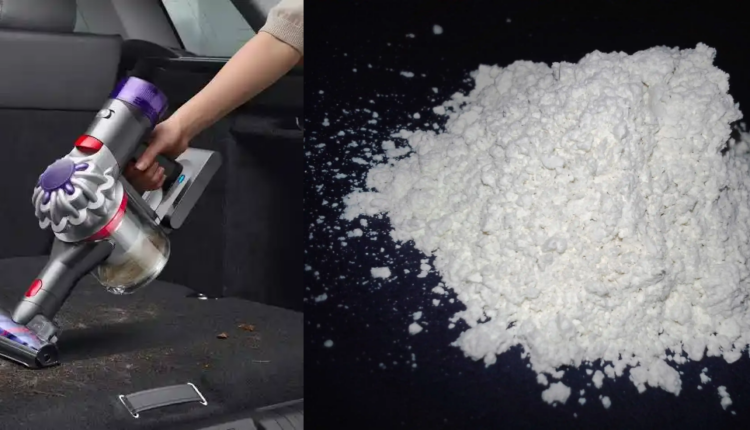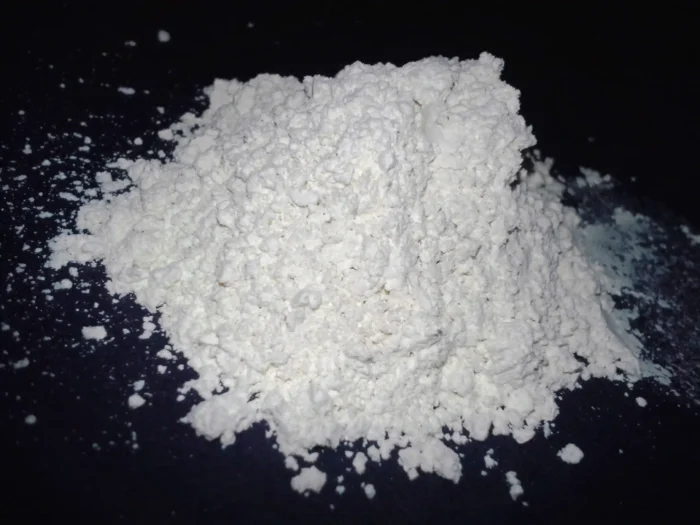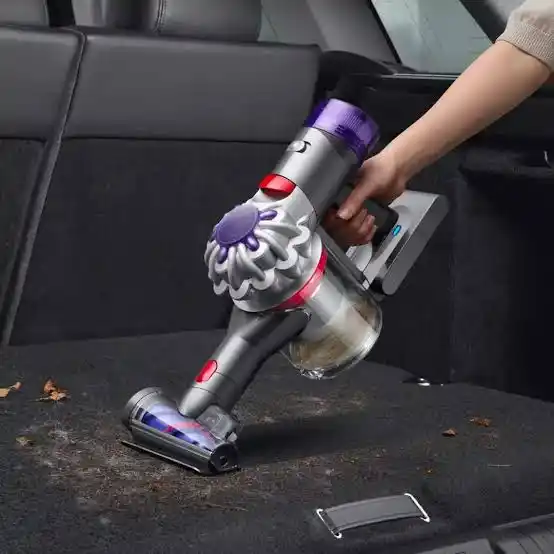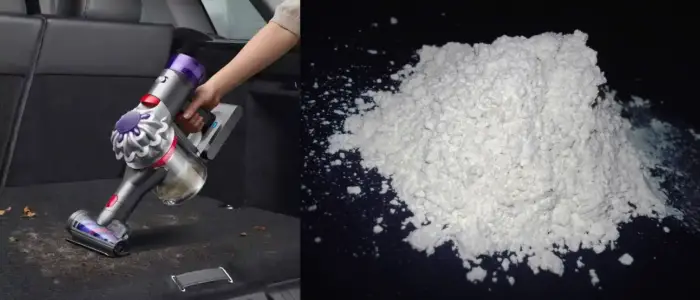
Unveiling the Truth: Can a Dyson Vacuum Handle Diatomaceous Earth?
Diatomaceous earth is a naturally occurring sedimentary rock that is composed of fossilized remains of diatoms, a type of algae.
It is a versatile substance that has gained popularity in recent years due to its many uses, including as a natural insecticide, deodorizer, and cleaning agent.
Diatomaceous earth is a fine powder that is made up of microscopic sharp edges, which give it its abrasive properties.
The benefits of using diatomaceous earth

There are numerous benefits to using diatomaceous earth in your cleaning routine. Firstly, it is an effective natural insecticide, making it an ideal solution for those who prefer to avoid harsh chemicals.
Diatomaceous earth works by dehydrating and cutting through the exoskeletons of insects, ultimately leading to their demise. Additionally, diatomaceous earth has absorbent properties that make it an excellent deodorizer.
It can be used to eliminate odors in various areas of your home, including garbage cans, pet bedding, and carpets. Lastly, diatomaceous earth can be used as a gentle abrasive cleaner, making it a versatile tool for tackling a wide range of cleaning tasks.
Can diatomaceous earth damage your vacuum?
One concern that many people have when considering using diatomaceous earth is whether it can damage their vacuum cleaners. Due to its abrasive nature, diatomaceous earth has the potential to cause damage to certain types of vacuum cleaners, particularly those with delicate components or brushes.
However, when it comes to Dyson, there is good news. Dyson vacuums are designed to handle a wide range of cleaning tasks, including picking up fine particles like diatomaceous earth.
The powerful suction and advanced filtration systems of Dyson vacuum cleaners make them well-equipped to handle the challenges posed by diatomaceous earth.
Understanding how a Dyson vacuum works

To understand why Dyson vacuums are capable of handling diatomaceous earth, it is important to understand how they work. Dyson vacuum operates on the principle of cyclonic suction, which means that they use centrifugal force to separate dirt and debris from the airflow.
This design ensures that the vacuum remains powerful and efficient even when dealing with fine particles like diatomaceous earth.
Additionally, Dyson vacuums are equipped with advanced filtration systems that capture even the smallest particles, preventing them from being released back into the air.
These features make Dyson vacuums an excellent choice for those who want to use diatomaceous earth as part of their cleaning routine.
Can a Dyson vacuum handle diatomaceous earth?

The answer is a resounding yes. Dyson vacuums are more than capable of handling diatomaceous earth. Their powerful suction and advanced filtration systems make them well-suited for picking up and containing fine particles like diatomaceous earth.
However, it is important to note that excessive use of diatomaceous earth can still cause some wear and tear on your vacuum over time.
To minimize any potential damage, it is recommended to use diatomaceous earth sparingly and follow proper cleaning and maintenance procedures.
Tips for using diatomaceous earth with a Dyson vacuum
If you plan on using diatomaceous earth with your Dyson vacuum, here are some tips to ensure a smooth and effective cleaning experience:
- Use a small amount: Diatomaceous earth is highly absorbent, so a little goes a long way. Start with a small amount and gradually increase if necessary.
- Spread evenly: Make sure to spread the diatomaceous earth evenly over the desired area to ensure effective cleaning.
- Allow time to work: Let the diatomaceous earth sit for a while before vacuuming to allow it to absorb odors or dehydrate insects.
- Empty the canister regularly: Diatomaceous earth can quickly fill up the dust canister of your Dyson vacuum. Empty it regularly to maintain optimal performance.
- Clean the filters: Diatomaceous earth can clog the filters of your vacuum. Clean or replace them as needed to ensure proper airflow.
By following these tips, you can safely and effectively use diatomaceous earth with your Dyson vacuum.
Alternative cleaning methods for diatomaceous earth
While using a vacuum cleaner like Dyson is the most common method for cleaning up diatomaceous earth, there are alternative methods you can consider:
- Sweeping: If you have a large area to clean or prefer not to use a vacuum, sweeping with a broom can be an effective way to collect diatomaceous earth. Make sure to use a dustpan to collect the swept-up diatomaceous earth for disposal.
- Damp cloth or mop: For hard surfaces, using a damp cloth or mop can help pick up diatomaceous earth. Be sure to rinse the cloth or mop thoroughly afterward to remove any residue.
- Handheld brush: In areas where a vacuum or broom may not reach, using a handheld brush can be a practical solution. Gently brush the diatomaceous earth into a dustpan for disposal.
Remember to wear gloves and a mask when handling diatomaceous earth to protect yourself from potential irritation.
Cleaning and maintaining your Dyson vacuum after using diatomaceous earth
After using diatomaceous earth with your Dyson vacuum, it is important to clean and maintain your vacuum properly to ensure its longevity and performance. Here are some steps to follow:
- Empty the dust canister: Remove the dust canister and empty it into a trash bag. Dispose of the diatomaceous earth properly.
- Clean the dust canister: Rinse the dust canister with warm water and mild detergent to remove any remaining diatomaceous earth. Allow it to dry completely before reattaching.
- Check the filters: Remove and clean the filters according to the manufacturer’s instructions. This will help maintain proper airflow and prevent clogs.
- Inspect the brushes and attachments: Check the brushes and attachments for any signs of wear or clogging. Clean or replace them as necessary.
- Store your Dyson vacuum properly: When not in use, store your Dyson vacuum in a clean and dry area to prevent dust or debris from accumulating.
By following these cleaning and maintenance steps, you can keep your Dyson vacuum in excellent condition even after using diatomaceous earth.
Dyson vacuum models recommended for handling diatomaceous earth
While all Dyson vacuums are capable of handling diatomaceous earth, some models are particularly well-suited for this task. The Dyson V11 Animal and the Dyson Ball Animal 2 are two models that are recommended for their powerful suction and durability.
These models are designed to tackle tough cleaning tasks, making them ideal for use with diatomaceous earth. However, it is important to note that the effectiveness of a vacuum is not solely determined by its model but also by regular cleaning and maintenance.
Conclusion
In conclusion, a Dyson vacuum is more than capable of handling diatomaceous earth. It’s powerful suction and advanced filtration systems make them well-suited for this task.

